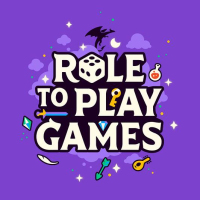A discharged soldier returns home to uncover the truth behind his father’s sudden passing, navigating a web of family secrets, evolving relationships, and morally charged choices. Will he seek vengeance, extend forgiveness, or forge a new path?
The Core Mystery: Unraveling a Father’s Death
1. Military Background as a Lens: Fresh from military service, the protagonist brings sharp instincts and a knack for deduction to his father’s case. His training in observation and strategy becomes critical when piecing together fragmented clues—old letters, cryptic phone records, and inconsistencies in witness statements—that hint at foul play.
2. A Puzzle of Motives: Clues lead to unexpected places: a business rival with ties to the family, a hidden will, or even a long-buried secret from the father’s past. Each discovery challenges assumptions, forcing players to question who to trust and what really happened that fateful day.
3. Emotional Stakes in Investigation: The search isn’t just logical—it’s personal. Flashbacks to childhood memories of the father humanize the quest, blending grief with determination. Players feel the weight of uncovering truths that could shatter or heal the family’s fragile dynamic.
Family Dynamics: Step-Relatives as Wild Cards
1. Complex Relationships at Home: Living with step-parents and half-siblings adds layers of tension. A stepmother who seems overly defensive, a stepsibling with a hidden grudge, or a father figure trying to protect the family—each relative has their own agenda, revealed through casual conversations, shared meals, or private arguments.
2. Relationships That Shape the Story: Beyond the mystery, the protagonist forms bonds (romantic or platonic) with these step-relatives. A tentative connection with a stepsister who shares his love for music, or a rivalry with a stepbrother over the family business, can pivot the narrative—turning potential enemies into allies… or vice versa.
3. The Illusion of “Normalcy”: On the surface, the household appears functional, but small cracks (a locked drawer, a hasty lie, a strained silence) hint at deeper turmoil. Players must stay observant to spot these details, as they often hold the key to unlocking the father’s story—and the family’s future.
Choices & Consequences: Your Path Defines the Ending
1. Moral Complexity Over Simplistic Justice: Revenge isn’t the only option. Players might choose to expose the truth publicly, confront the culprit privately, or even protect the family by burying evidence—each choice carrying emotional and practical repercussions (e.g., a sibling’s trust broken, a business collapsing).
2. Relationships Impact Outcomes: The depth of connections with step-relatives directly affects the story’s direction. A supportive stepsister might provide crucial alibis; a distant half-brother could become an unlikely confidant. Neglecting these bonds risks missing key clues or alienating potential allies.
3. Multiple Endings for Every Perspective: From tragic (uncovering the truth but losing the family) to redemptive (healing old wounds while honoring the father’s legacy), the game’s branching paths ensure no two playthroughs feel the same. Replaying reveals hidden nuances, making every decision feel impactful.





















Preview: